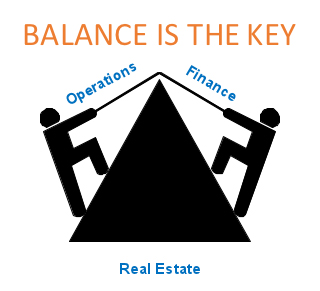Unlike Hamlet, you don’t have go mad trying to find the answer. But you do have to begin with the end in mind.
By Jim Schnur, CCIM
President and Designated Managing Broker
Integrated Real Estate Solutions
Poor Hamlet struggled with “to be or not to be?” and seemed to drive himself crazy. Fortunately, “lease or buy” isn’t quite that challenging, but business owners too often struggle more than they have to. Seeing the decision as part of a company’s broader business strategy, as we do, can help.
In commercial real estate, two considerations are paramount:
– Flexibility.
– Use of capital.
Especially for growth companies, the ability to expand or reduce space or move to a new location is fundamental to flexibility. That means leasing is almost always the right move. Plus, buying commercial space these days requires a 10-to-15 year term with a 20-to-25 year amortization mortgage and, typically, a 20 percent cash down payment. Unless they’re established manufacturers, most growing companies will fare better in both the short and long term by reinvesting revenue in their core competencies—their strengths—not real estate.
The key is balance. To succeed, any enterprise must balance the use of capital invested in core business capabilities with that invested in operational activities such as real estate. Doing that requires understanding how real estate decisions affect operations and applying the right financial structure to real estate deals.
The CEO of a professional services firm, for example, once asked me some time ago about taking advantage of low interest rates to buy an office condominium. He had moved his business twice in the past five years, and he was looking for a more stable environment. Reasonable to consider but, as it turned out, unreasonable to pursue. His company might require more space than he could afford to buy. After we talked through our way of thinking about it, he recognized his business had better things to do with its money than buy property. We were able to secure a five-year lease for his company with a right of first refusal as additional space opened up in the building.
The chart, “How Operating Needs Affect Lease/Buy Decisions,” shows the hierarchy when you think about real estate from a business operations point of view based on how much control over space your business requires.
 – Ownership makes sense for long-term strategic investments that require the highest level of control—a corporate headquarters or data center, for example, or a state-of-the-art research and development facility. Such operations involve large capital investments, have long useful lives, and seek a high level of stability.
– Ownership makes sense for long-term strategic investments that require the highest level of control—a corporate headquarters or data center, for example, or a state-of-the-art research and development facility. Such operations involve large capital investments, have long useful lives, and seek a high level of stability.
– Credit, or Bondable, Lease allows a landlord to finance a property purchase using the projected income from tenants as collateral for borrowing. A long-term lease (typically 20-plus years) with a larger, investment-grade credit tenant is the key for the landlord (and the financer). If your business qualifies as such a tenant, then you may benefit from this financing structure.
– Traditional Real Estate Operating Lease is generally what most business owners are familiar with and is the most common form of commercial lease. Many manufacturers, distributors, professional services, and pure sales organizations find this structure useful because of its flexibility. Since it’s not uncommon for a company’s supply chain to experience change over, say, seven to ten years, distribution centers often benefit from this structure as well.
So what’s the answer for your company when the “to lease or to buy” question takes the stage? An important component is to work with a commercial real estate professional who looks at real estate as a piece of solving the larger strategic puzzle, not as the solution itself.
Another useful idea is to develop a relationship with such a professional, much as you would with a banker, to help that person gain a deeper understanding of how your business works and where you want it to go. The real estate piece then has much better odds of falling neatly into place. For more insight on how to think about real estate from a “whole business” point of view, see my last column “The Question Every Broker Must Ask.”
To get started and perhaps usher in a new business relationship with the New Year, just call me at 847-550-0160 or e-mail with the contact form below.

